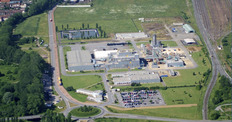- The joint venture will invest €230M to build the PET biorecycling plant.
- Construction is expected to start by end of 2023 and commissioning by 2025.
- The plant will process 50,000 tons of post-consumer PET waste annually.
- Indorama Ventures plans to mobilize about €110M in equity and loan financing.

Investment and Financing
Carbios and Indorama Ventures have signed a non-binding Memorandum of Understanding (MOU) to form a Joint Venture for constructing the world’s first PET biorecycling plant in Longlaville, France. Indorama Ventures plans to mobilize about €110 million in equity and non-convertible loan financing, pending final engineering documentation and economic feasibility studies. The total capital investment for the new plant is estimated to be around €230 million, considering recent inflation impacts. Financing will come from Indorama Ventures, French State and Grand-Est Region subsidies, and equity capitalization by Carbios.
Project Timeline
Carbios filed for plant permitting in December 2022 and expects to acquire 13 hectares of land from Indorama Ventures’ existing PET plant at Longlaville. Permits are anticipated by Q3 2023, with construction starting by the end of 2023 and commissioning targeted for 2025. The land allows for potential capacity doubling in the future.
Plant Capacity and Technology
The plant will process about 50,000 tons of post-consumer PET waste per year, including non-mechanically recyclable waste, equivalent to 2 billion PET colored bottles or 2.5 billion PET trays. Carbios has developed an enzymatic depolymerization technology for efficient, solvent-free recycling of PET plastic and textile waste into virgin-like products, aiming for true circularity.
Future Expansion
Indorama Ventures confirms its intention to potentially expand the technology to other PET sites globally, subject to the successful performance of the Longlaville plant. This project aligns with Indorama Ventures’ Vision 2030 goals, which include increasing recycling capacity to 50 billion PET bottles per year by 2025 and 100 billion bottles per year by 2030.

